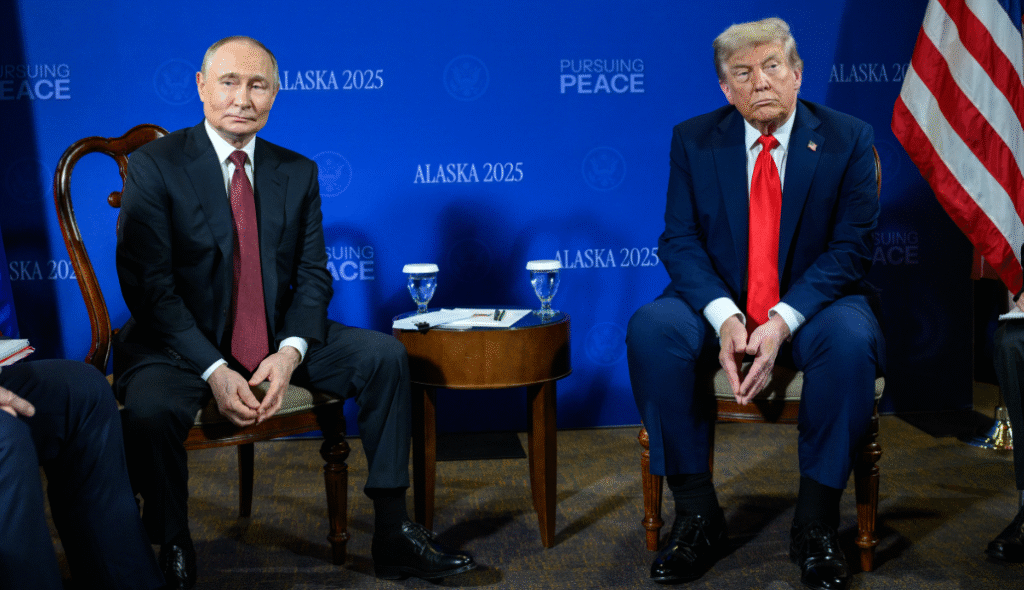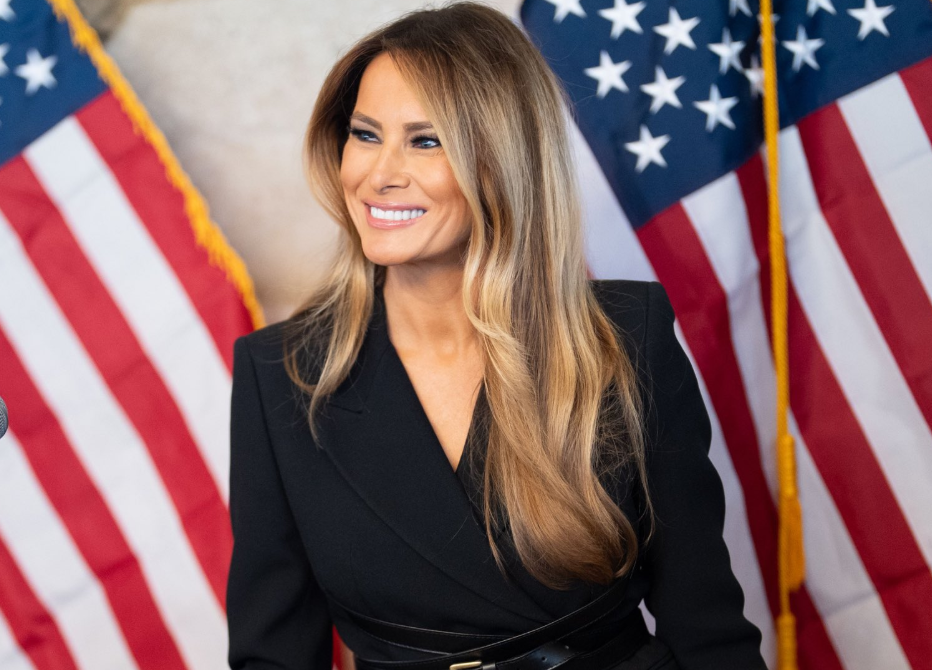On August 15, 2025, during the Trump-Putin summit in Alaska, First Lady Melania Trump handed President Donald Trump a personal letter addressed to Vladimir Putin, urging action on Ukraine’s abducted children. Nearly 20,000 children are reported to have been forcibly deported to Russia or occupied territories, a practice condemned as a war crime by Ukraine and the United Nations.
Melania Trump’s Eastern European roots and humanitarian focus have amplified her influence in U.S. foreign policy, shaping Trump’s stance on both the Ukraine conflict and Gaza’s humanitarian crisis. Western diplomats now see her as a central figure in U.S. diplomacy, as her appeals on behalf of vulnerable children redefine her role on the world stage.
Melania Trump Sends Letter to Putin
On August 15, 2025, during a high-stakes summit in Anchorage, Alaska, U.S. President Donald Trump delivered a personal letter from First Lady Melania Trump to Russian President Vladimir Putin. The letter, previously unreported, directly addressed the abduction and forced relocation of Ukrainian children amid Russia’s ongoing war in Ukraine.
According to the Institute for the Study of War, nearly 19,500 children have been verified as deported to Russia, while Ukrainian officials estimate the true number could exceed 20,000. Kyiv has labeled the practice a war crime and even potential genocide under United Nations treaties.
The United Nations Human Rights Office has documented repeated violations of children’s rights by Russia since its 2022 invasion, accusing Moscow of inflicting widespread suffering. Russia continues to claim it is rescuing vulnerable children from conflict zones, a justification widely dismissed by Ukraine and international institutions. In March 2023, the International Criminal Court issued an arrest warrant for Vladimir Putin over unlawful child deportations.
Melania Trump, born in Slovenia, has brought a personal Eastern European perspective to the issue. Her letter to Putin highlights her growing diplomatic role and influence over U.S. foreign policy. Although the Anchorage summit lasted nearly three hours without producing a ceasefire in Ukraine, the delivery of her letter represented a humanitarian appeal that underscores the seriousness of the child abduction issue. The move has already sparked new international discussion around what is now increasingly referred to as the “Melania Putin” moment in humanitarian diplomacy.
President Trump has acknowledged Melania trump’s influence on his evolving stance toward Putin. Speaking at a July 15, 2025 meeting with NATO Secretary General Mark Rutte, Trump recalled a conversation with his wife that challenged his initial impressions of the Russian leader. “I go home, I tell the First Lady: I spoke with Vladimir today. We had a wonderful conversation. She said: ‘Really? Another city was just hit,’” Trump recounted, illustrating Melania’s skepticism about Putin’s sincerity and her role in pushing him to reassess Moscow’s actions.
Her impact is not only behind the scenes. A February 2025 poll ranked Melania as the 10th most influential figure in Trump’s administration, ahead of several prominent advisers. Though she rarely speaks publicly, her interventions carry significant weight. In 2022, she broke her silence on X to call images from Ukraine “heartbreaking and horrific,” urging donations to the Red Cross. This contrasted sharply with Donald Trump’s early description of Putin’s invasion as “genius.”
Beyond Ukraine, Melania Trump has also shaped her husband’s response to the humanitarian crisis in Gaza. Trump himself credited Melania for drawing his attention to the starvation and suffering of children in the besieged enclave. “She sees the same pictures that you see and that we all see… There’s nothing you can say other than it’s terrible when you see the kids… They are starving, and you see the mothers, they love them so much and there’s just nothing they seem to be able to do,” Trump said. He pledged to work with European allies to ensure humanitarian aid reaches Gaza, in contrast to the restrictions imposed by Israeli Prime Minister Benjamin Netanyahu.

This acknowledgment marks a major shift in Trump’s public stance, as he has now recognized the reality of “real starvation” in Gaza. His statements, heavily influenced by Melania’s emotional reactions to the suffering of children, signal a broader recalibration of U.S. policy. Melania’s long-standing advocacy for vulnerable populations, including her work on behalf of orphans and children at risk of online exploitation, aligns closely with this humanitarian emphasis.
Western diplomats have taken note of her growing role. British officials, preparing for Trump’s state visit to the United Kingdom later this month, have acknowledged her importance in shaping U.S. foreign policy. One source told The Guardian, “Starmer has earned Trump’s respect… But she’s the one who matters.” Such recognition suggests that Melania Trump’s discreet but powerful influence is altering the way foreign governments approach Washington.
Her evolving role challenges past portrayals of her as politically disengaged. Instead, Melania emerges as an independent and occasionally divergent voice in the Trump administration—most notably on humanitarian issues such as Ukraine’s abducted children and Gaza’s starving families.
As the Trump administration navigates these complex global crises, Melania Trump’s focus on the plight of vulnerable children and families highlights a new dimension of her diplomatic significance. Whether through her letter to Putin on Ukrainian child abductions or her advocacy for aid to Gaza, her influence is shaping U.S. policy at a critical moment on the world stage.

